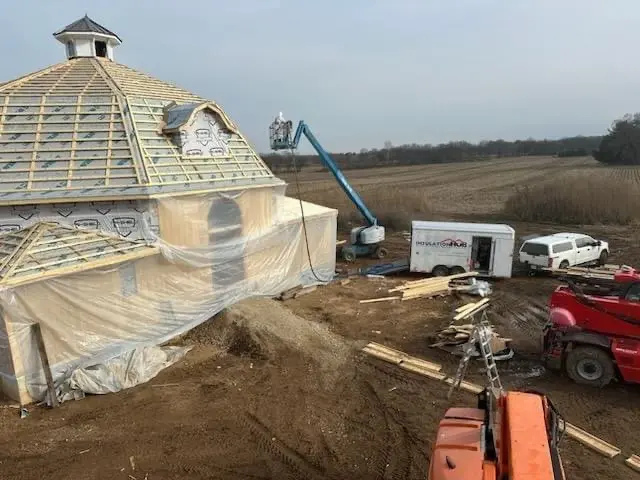In today’s world, ensuring the safety and durability of your commercial property is more crucial than ever. One key aspect of this is fireproofing and insulation. In this guide, we’ll explore what commercial fireproofing and insulation entail, their benefits, and how they can effectively protect your business from potential hazards.
Understanding Commercial Fireproofing
Learn about the principles behind fireproofing, including materials used and their effectiveness in minimizing damage during a fire.
Commercial fireproofing is an essential aspect of safety management in businesses. It involves various strategies and materials designed to prevent the spread of fire and reduce smoke damage. By using advanced materials like gypsum boards and mineral wool, companies can create barriers that slow down fire progression.
Understanding the different types of fireproofing systems is crucial. Active fireproofing methods, such as sprinklers and alarms, work during an incident, while passive methods aim to contain fire risks. Both play a vital role in creating a comprehensive fire safety strategy for your business.
The Importance of Insulation
Explore how proper insulation not only enhances energy efficiency but also plays a vital role in fire protection.
Insulation is more than just a means to keep your facility warm in winter or cool in summer; it’s a cornerstone of fire safety. Well-insulated buildings reduce the risk of fire spreading quickly through the structure, giving occupants more time to evacuate and first responders a better chance of controlling the situation.
By incorporating insulation as part of your fireproofing efforts, you simultaneously reduce energy costs and improve the overall safety of your property. It’s an investment that pays off in more ways than one, fostering a sustainable and protected business environment.
Types of Fireproofing Materials
Discuss the various fireproofing materials available, including spray-on coatings, intumescent paints, and non-combustible boards, along with their pros and cons.
There are several fireproofing materials available, each with unique benefits. For instance, spray-on coatings provide an efficient way to cover large areas quickly and are versatile for different surfaces. However, they may require periodic reapplication to maintain effectiveness.
Intumescent paints, on the other hand, provide aesthetically pleasing protection, expanding when exposed to heat to form a charred layer that insulates the underlying material. Yet, they can be more costly than other options and may necessitate precise application techniques.
Non-combustible boards are durable and can be used in various applications, making them a popular choice. While they offer excellent fire resistance, they can limit design flexibility if not installed properly. Each material has its strength, and the best choice depends on your specific needs.
Choosing the Right Contractor
Get tips on how to select a qualified contractor for fireproofing and insulation projects, ensuring you get the best results for your business.
Selecting a qualified contractor for your fireproofing and insulation project is crucial for effective installation. It’s not just about the lowest bid; you want a partner who understands the specific requirements and complexities of commercial safety standards.
Start by reviewing potential contractors’ credentials. Look for licensing and insurance to protect yourself and verify their experience in commercial projects. Ask for references and reviews, focusing on previous work related to fireproofing and insulation.
Finally, a good contractor will communicate clearly, providing a detailed breakdown of the work process, materials, and timelines expected. Trusting your instinct about their professionalism can also lead to a fruitful partnership.
Maintaining Your Fireproofing and Insulation Systems
Learn about the maintenance needs of fireproofing and insulation treatments to ensure long-lasting protection.
Maintaining your fireproofing and insulation systems is essential for safeguarding your business. Regular inspections will identify any deterioration that could compromise your safety measures. It’s advisable to schedule maintenance at least once a year.
Maintaining fireproofing systems may include cleaning and repairing any damaged areas as well. This helps ensure the materials remain effective, as wear and tear can diminish their protective capabilities over time.
For insulation, checking for gaps or settling is key, as any loss in integrity can lead to energy inefficiency and decreased fire resistance. By investing in routine maintenance, you not only ensure compliance with safety regulations but also prolong the lifespan of your fire safety systems.
Final Thoughts on Commercial Fireproofing and Insulation
By understanding the importance of commercial fireproofing and insulation, you can take proactive steps to secure your business and its assets. Whether you’re starting from scratch or looking to improve your current systems, the right strategies will help safeguard your investment and maintain a safe, efficient workplace.

